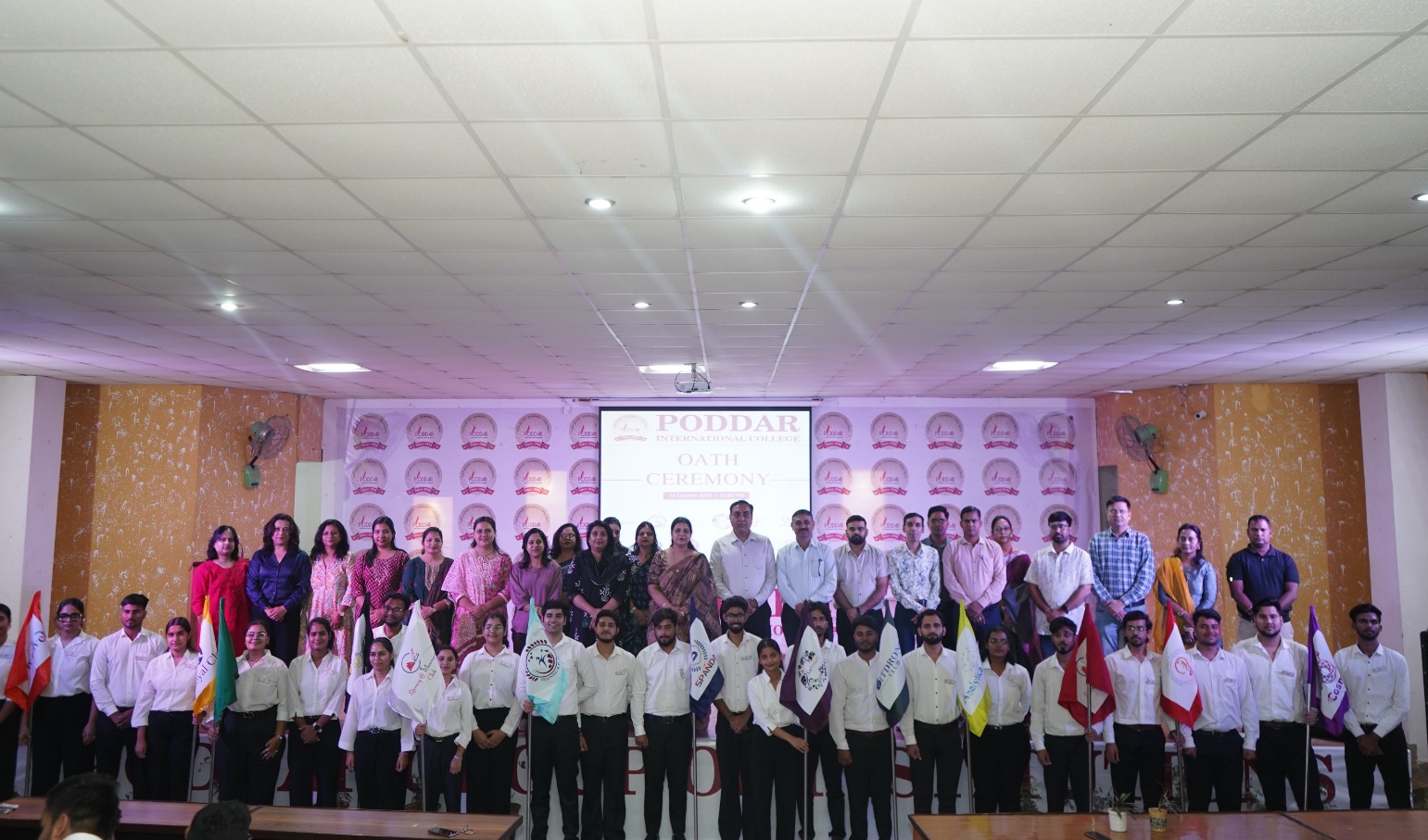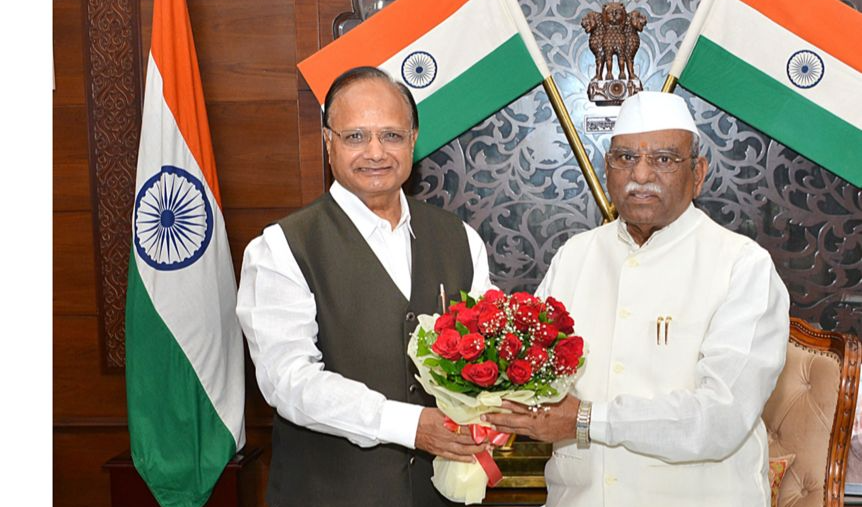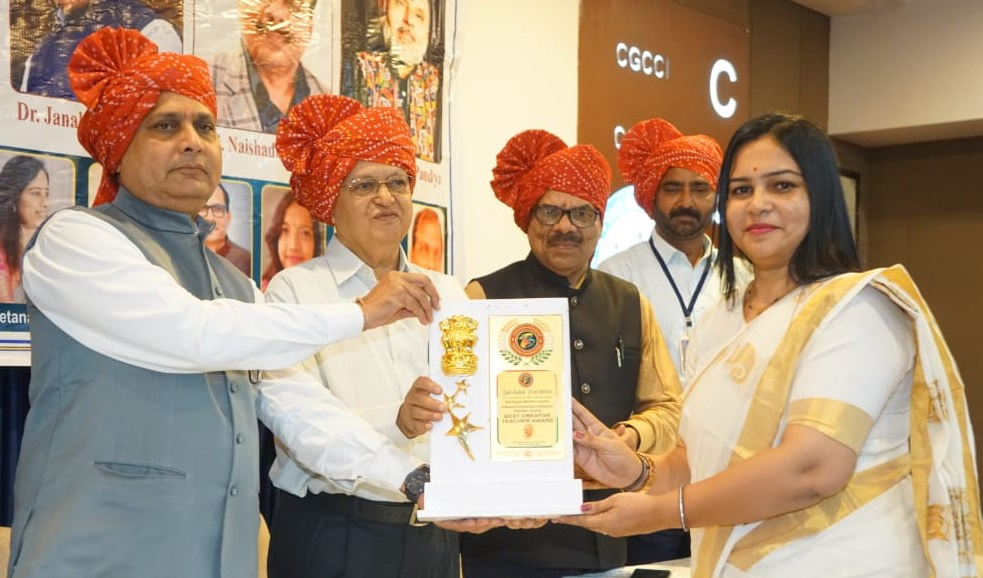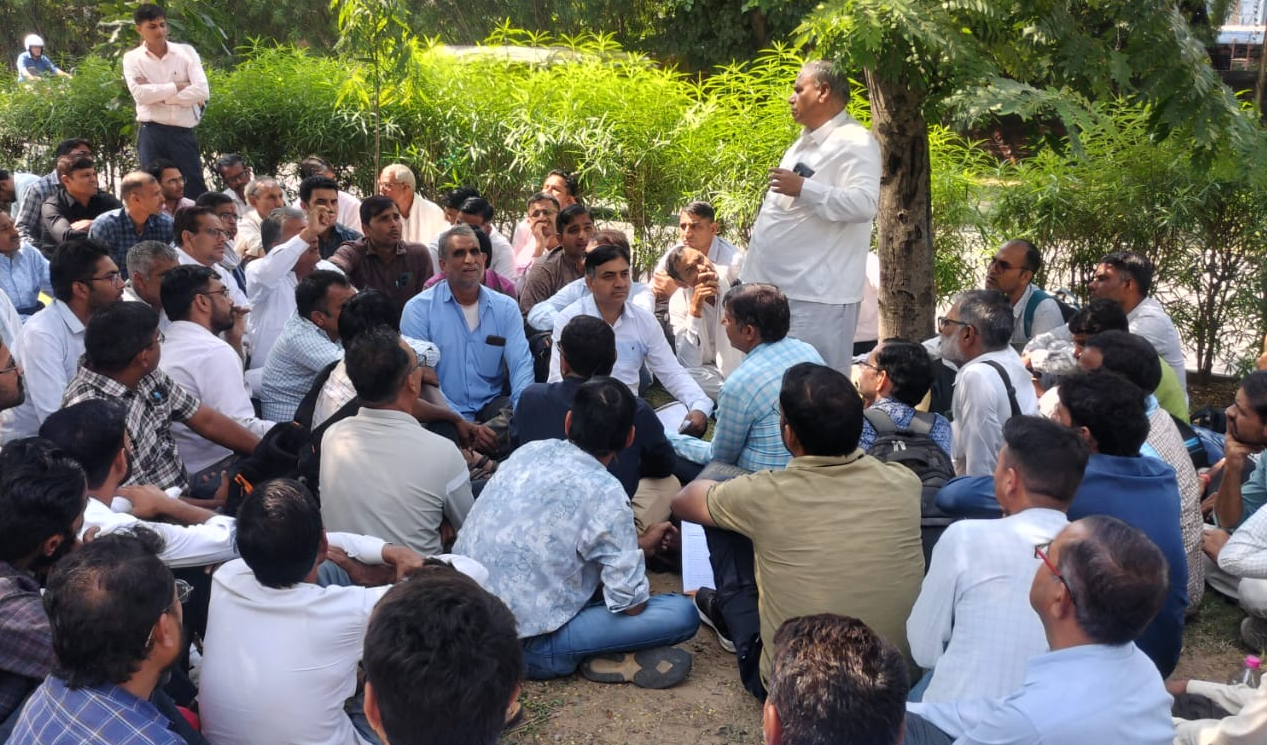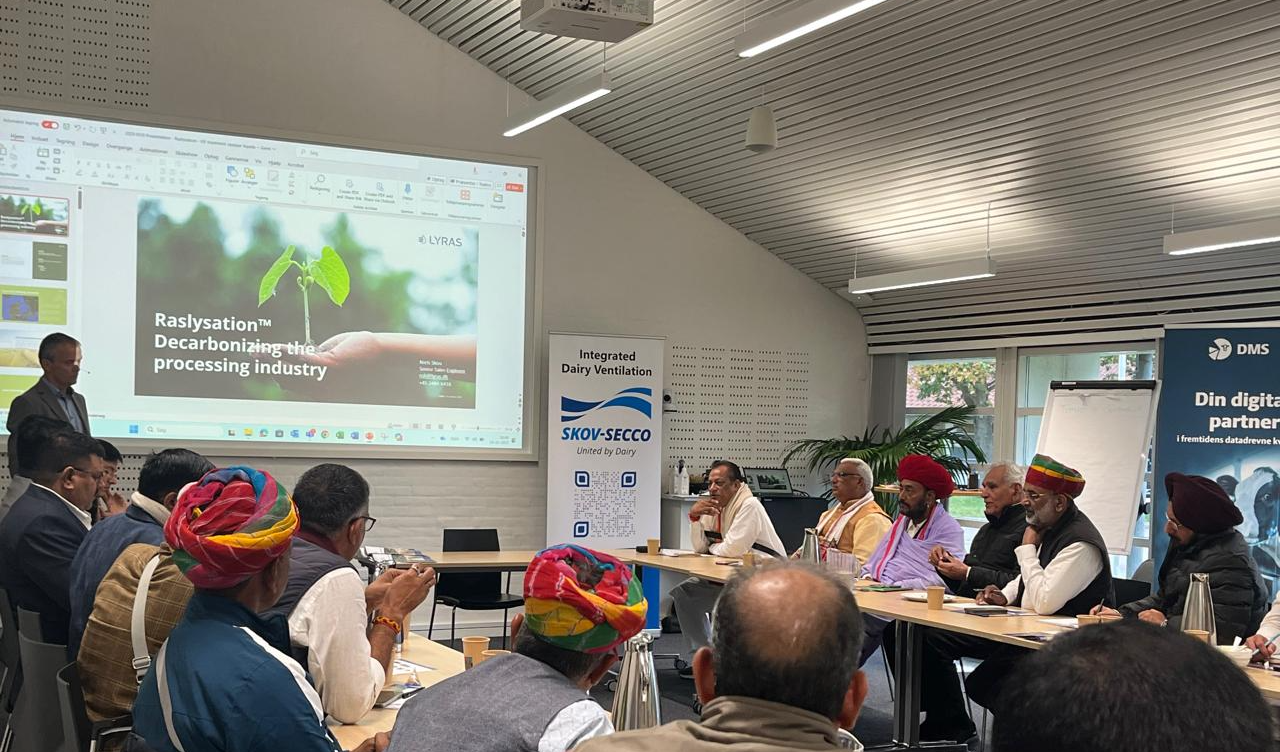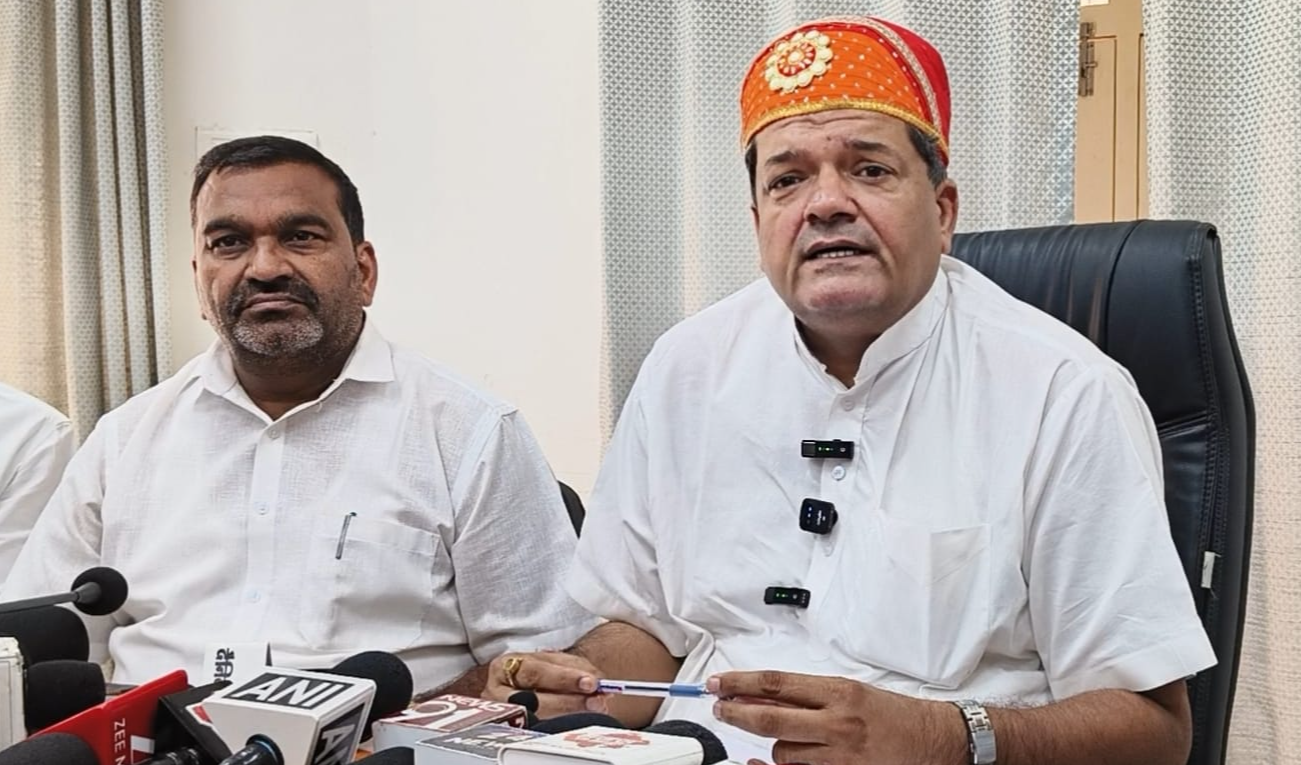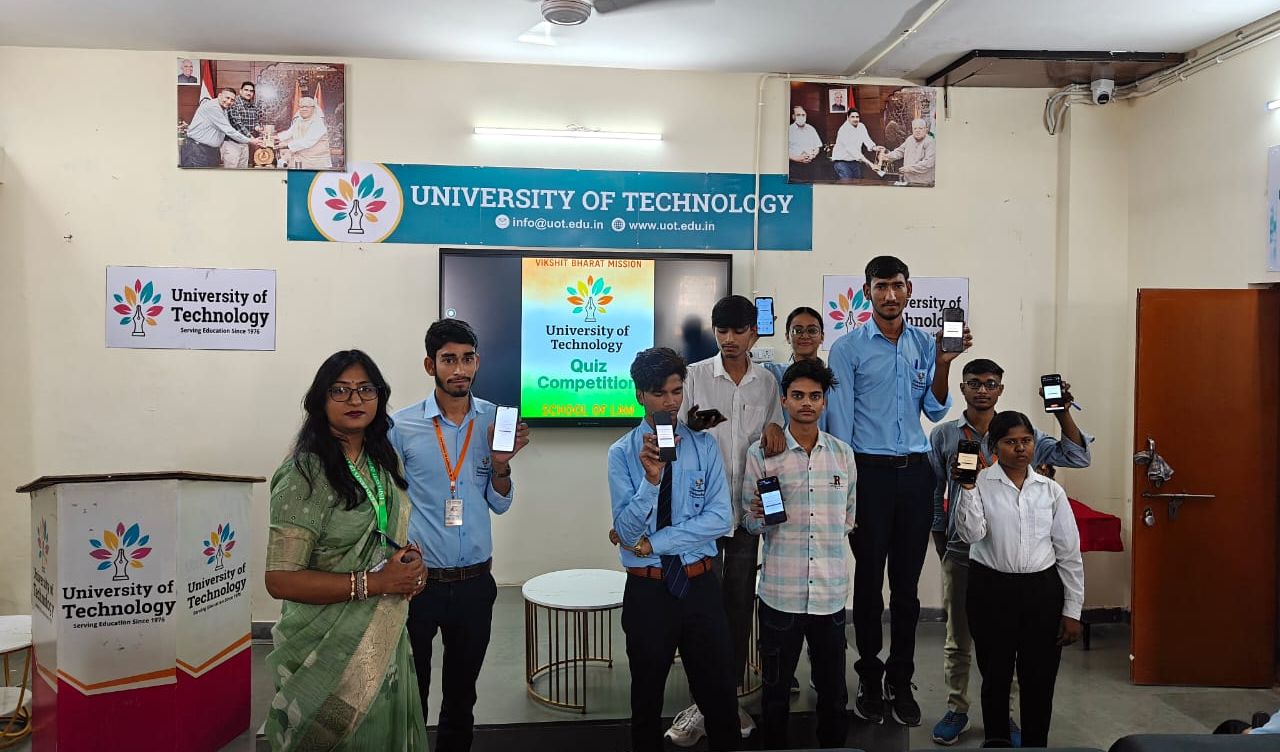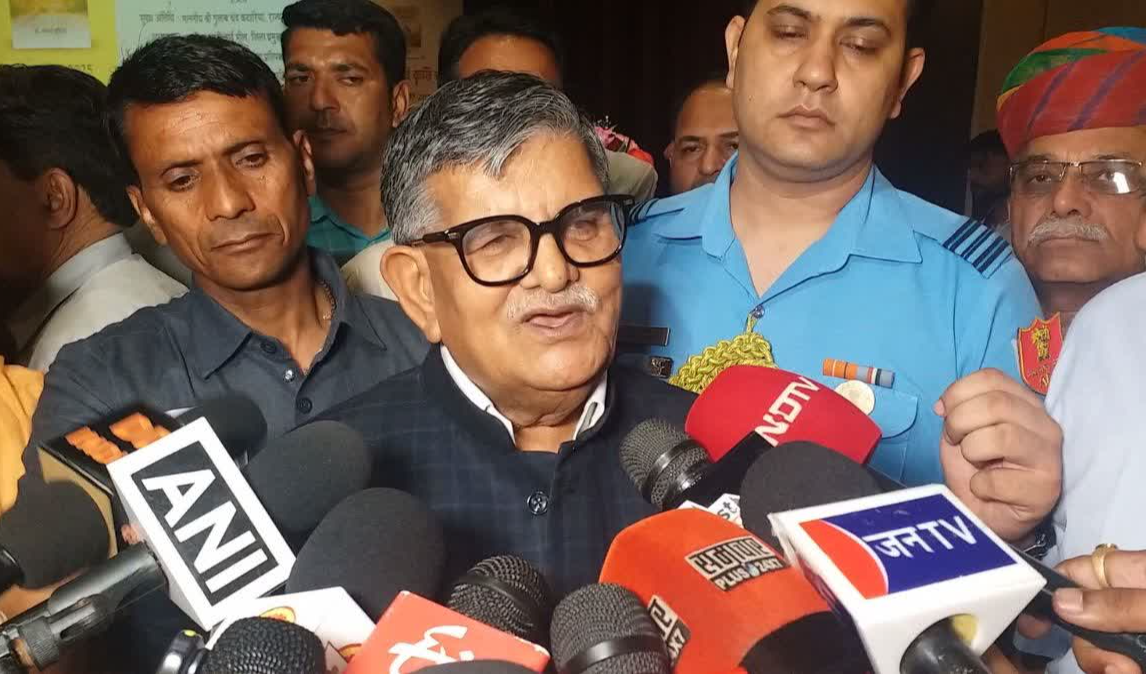Latest
IPL वैल्यू में गिरावट, महिला क्रिकेट पर खर्च पुरुषों से 3.5 गुना कम नई दिल्ली। भारत ने एशिया कप 2025 में फाइनल में पाकिस्तान को हराकर खिताब अपने नाम किया, लेकिन विवादास्पद स्थिति में ट्रॉफी और मेडल्स लेने से इनकार कर दिया। इसके बावजूद भारतीय क्रिकेट कंट्रोल बोर्ड (BCCI) को इस टूर्नामेंट से वित्तीय लाभ हुआ है। TOI की रिपोर्ट के अनुसार, एशिया कप से BCCI को करीब 109.44 करोड़ रुपए का फायदा हुआ है। एशिया कप और इंटरनेशनल टूर्नामेंट से लाभ BCCI को एशिया कप की होस्ट फीस और टी-20 वर्ल्ड कप की पार्टिसिपेशन फीस से इंटरनेशनल टूर के मद में कुल 109.44 करोड़ रुपए का लाभ हुआ। बोर्ड ने इसे इस साल अपनी वित्तीय स्थिति को और मजबूत करने वाले कदम के रूप में देखा है। BCCI की 2025-26 वित्तीय उम्मीदें 2025-26 वित्तीय वर्ष में BCCI को कुल 6700 करोड़ रुपए की कमाई की उम्मीद है। यह पिछले 2017-18 के वित्तीय वर्ष के 666 करोड़ रुपए से लगभग दस गुना अधिक है। IPL की ब्रॉन्ड वैल्यू में गिरावट इंडियन प्रीमियर लीग (IPL) की ब्रॉन्ड वैल्यू लगातार दूसरे वर्ष घटकर लगभग 16000 करोड़ रुपए रह गई है। हालांकि यह विश्व स्तर पर सबसे लोकप्रिय क्रिकेट लीग बनी हुई है, लेकिन मूल्यांकन में गिरावट ने BCCI के आर्थिक संतुलन पर कुछ असर डाला है। महिला क्रिकेट पर खर्च पुरुषों के मुकाबले कम BCCI इस साल महिला क्रिकेट के घरेलू टूर्नामेंटों में लगभग 96 करोड़ रुपए खर्च कर रहा है, जो कि पुरुषों के घरेलू क्रिकेट पर किए जाने वाले खर्च 344 करोड़ रुपए से करीब 3.5 गुना कम है। WPL (विमेंस प्रीमियर लीग) से बोर्ड को पिछले सीजन में करीब 350 करोड़ रुपए का लाभ हुआ था, जबकि IPL में केवल खर्च ही 111 करोड़ रुपए रहा। विशेष रूप से महिला क्रिकेट में रणजी ट्रॉफी जैसे कोई बड़ा घरेलू टूर्नामेंट नहीं होने के कारण महिला खिलाड़ियों को पुरुष खिलाड़ियों के समान संसाधन और वित्तीय समर्थन नहीं मिल पा रहा है। BCCI के वित्तीय आंकड़े दिखाते हैं कि एशिया कप और अंतरराष्ट्रीय टूर्नामेंटों से बोर्ड को मजबूत लाभ मिला है। हालांकि IPL वैल्यू में गिरावट और महिला क्रिकेट पर कम निवेश ने विवाद और आलोचना को जन्म दिया है। बोर्ड के लिए अब चुनौती यह है कि महिला क्रिकेट को बराबरी का वित्तीय समर्थन दें और साथ ही IPL और अन्य टूर्नामेंटों के आर्थिक संतुलन को बनाए रखें।
पूर्व स्पिनर ने कहा – आलोचना खेल तक सीमित रहनी चाहिए, व्यक्तिगत हमला शर्मनाक नई दिल्ली। भारतीय क्रिकेट के युवा तेज़ गेंदबाज हर्षित राणा को लेकर सोशल मीडिया पर चल रही ट्रोलिंग को लेकर पूर्व भारतीय ऑफ़ स्पिनर आर अश्विन ने कड़ा बयान दिया है। अश्विन ने कहा कि आलोचना केवल खेल तक सीमित रहनी चाहिए और व्यक्तिगत हमले किसी भी परिस्थिति में स्वीकार्य नहीं हैं। अश्विन का संदेश अश्विन ने अपनी स्थिति स्पष्ट करते हुए कहा कि,"नकारात्मकता तेजी से फैलती है। लोग हर्षित या उसके माता-पिता की ट्रोलिंग वाले वीडियो देखकर उनकी मानसिकता पर क्या असर पड़ सकता है, इसके बारे में सोचें।" उन्होंने यह भी जोर देकर कहा कि युवा खिलाड़ियों को व्यक्तिगत रूप से निशाना बनाना न केवल अनुचित है बल्कि खेल की भावना के खिलाफ भी है। गौतम गंभीर का समर्थन पूर्व भारतीय कप्तान और कोच गौतम गंभीर ने भी हर्षित राणा का समर्थन किया। उन्होंने कहा कि युवा खिलाड़ियों को ट्रोलिंग और व्यक्तिगत हमले झेलने के लिए मजबूर करना शर्मनाक है और इसे रोकने के लिए सभी को सतर्क रहना चाहिए। हर्षित राणा की चुनौती हर्षित राणा को हाल ही में राष्ट्रीय टीम में चयन मिला है, और वह 19 अक्टूबर से शुरू होने वाली ऑस्ट्रेलिया के खिलाफ वनडे और टी20I सीरीज़ में खेलेंगे। हालांकि, उनके चयन को लेकर आलोचनाएं लगातार सामने आई हैं क्योंकि उन्होंने अभी तक अंतरराष्ट्रीय स्तर पर निरंतर प्रदर्शन नहीं दिखाया है। खेल और व्यक्तिगत सम्मान का अंतर अश्विन और गंभीर के बयान इस बात को उजागर करते हैं कि खेल में आलोचना स्वीकार्य है, लेकिन व्यक्तिगत हमले और ट्रोलिंग युवा खिलाड़ियों के मानसिक स्वास्थ्य और करियर पर नकारात्मक प्रभाव डाल सकते हैं। हर्षित राणा के मामले ने एक बार फिर क्रिकेट जगत में सोशल मीडिया ट्रोलिंग और व्यक्तिगत हमलों के खिलाफ चेतावनी दी है। विशेषज्ञों का कहना है कि आलोचना खेल तक सीमित रहनी चाहिए और युवा खिलाड़ियों को सकारात्मक माहौल देना आवश्यक है।
तीन शतक भी बनाएंगे तो 2027 विश्व कप में जगह की कोई गारंटी नहीं नई दिल्ली। भारतीय क्रिकेट टीम के दिग्गज बल्लेबाज विराट कोहली और रोहित शर्मा इंटरनेशनल क्रिकेट में रनों के अंबार लगाने के बावजूद अब केवल वनडे प्रारूप पर ध्यान केंद्रित कर रहे हैं। ऐसे में टीम चयन और भविष्य को लेकर लगातार सवाल उठ रहे हैं। ऑस्ट्रेलिया दौरे पर दोनों की वापसी कोहली और रोहित ऑस्ट्रेलिया दौरे के जरिए भारतीय टीम में वापसी कर रहे हैं। 19 अक्टूबर से शुरू होने वाली इस श्रृंखला में भारतीय टीम तीन वनडे और पांच टी20 इंटरनेशनल मुकाबले खेलेगी। यह दोनों खिलाड़ी आईसीसी चैम्पियंस ट्रॉफी 2025 के बाद पहली बार टीम इंडिया के लिए मैदान में उतरेंगे। वनडे करियर को लेकर कयास और चयन चर्चा ऑस्ट्रेलिया सीरीज से पहले ही उनके वनडे करियर को लेकर कयास लगने लगे हैं। यह कहा जा रहा है कि इस श्रृंखला के प्रदर्शन के आधार पर उनकी 2027 विश्व कप की संभावनाओं का निर्णय लिया जा सकता है। हालांकि टीम इंडिया के चीफ सेलेक्टर अजीत अगरकर ने स्पष्ट किया है कि केवल तीन मैचों की सीरीज से यह तय नहीं किया जा सकता कि कोहली और रोहित 2027 विश्व कप में खेलेंगे या नहीं। अजीत अगरकर का बयान अजीत अगरकर ने कहा, "कोहली और रोहित का मूल्यांकन किसी एक सीरीज या मैच के आधार पर करना उचित नहीं है। यदि वे तीन शतक भी बनाएंगे, तो भी 2027 विश्व कप में खेलने की कोई गारंटी नहीं दी जा सकती।" अगरकर ने यह भी संकेत दिया कि टीम को विकल्पों पर नजर रखनी होगी और भविष्य में टीम चयन में संतुलित निर्णय लेना आवश्यक है। विशेषज्ञों की राय क्रिकेट विशेषज्ञों का कहना है कि कोहली और रोहित जैसे दिग्गज खिलाड़ियों का अनुभव टीम के लिए अमूल्य है, लेकिन युवा खिलाड़ियों और विकल्पों को तैयार करना टीम की दीर्घकालिक रणनीति का हिस्सा है। ऐसे में दिग्गज खिलाड़ियों का चयन सिर्फ व्यक्तिगत प्रदर्शन पर निर्भर नहीं होगा। अजीत अगरकर के स्पष्ट बयान ने एक बार फिर यह स्पष्ट कर दिया है कि टीम इंडिया में चयन केवल व्यक्तिगत उपलब्धियों पर निर्भर नहीं करता। विराट कोहली और रोहित शर्मा को विश्व कप टीम में जगह पाने के लिए लगातार उच्च स्तर का प्रदर्शन और टीम की रणनीतिक आवश्यकताओं को संतुलित करना होगा।
20 दिनों में आए तीन बयान, चयन प्रक्रिया पर बनी सस्पेंस की स्थिति नई दिल्ली। भारतीय क्रिकेट टीम के तेज गेंदबाज मोहम्मद शमी और टीम के चीफ सेलेक्टर अजीत अगरकर के बीच टीम चयन को लेकर जारी बयानबाजी ने सुर्खियां बटोरी हैं। पिछले 20 दिनों में दोनों के तीन अलग-अलग बयान सामने आए हैं, जिसने टीम सेलेक्शन प्रक्रिया और फिटनेस के सवालों को फिर से उजागर कर दिया है। शमी का टीम इंडिया से बाहर रहना मोहम्मद शमी लंबे समय से टीम इंडिया का हिस्सा नहीं हैं। हाल ही में घोषित ऑस्ट्रेलिया दौरे के लिए भी उनका नाम नहीं शामिल किया गया। इस दौरे में भारतीय टीम 3 वनडे और 5 टी20 मैच खेलेगी। शमी ने टीम चयन को लेकर हाल ही में चयनकर्ताओं पर निशाना साधा था। अजीत अगरकर का पहला बयान 25 सितंबर को जब वेस्टइंडीज के खिलाफ टेस्ट सीरीज के लिए टीम इंडिया का ऐलान हुआ, तब शमी को टीम में शामिल नहीं किया गया। इस पर अजीत अगरकर ने कहा कि शमी के बारे में फिलहाल कोई नई जानकारी नहीं है। उन्होंने यह भी स्पष्ट किया कि शमी ने हाल में ज्यादा क्रिकेट नहीं खेला है और उन्हें अधिक मैच खेलने की जरूरत है। “शमी की फिटनेस और मैच प्रैक्टिस के बारे में हमें कोई नई जानकारी नहीं मिली है। उन्हें अधिक मैच खेलने की आवश्यकता है।” तीन बयान और सवालों की स्थिति इसके बाद, पिछले 20 दिनों में शमी और अगरकर के बीच दो और बयान सामने आए, जिनमें टीम चयन, फिटनेस और खिलाड़ियों की तैयारी पर मतभेद स्पष्ट रूप से दिखे। इस स्थिति ने चयन प्रक्रिया को लेकर नई बहस छेड़ दी है। क्रिकेट विशेषज्ञों का कहना है कि यह मतभेद टीम के मनोबल और आगामी सीरीज की रणनीति पर भी असर डाल सकता है। विशेषज्ञों का नजरिया पूर्व क्रिकेटर्स और विश्लेषकों का कहना है कि शमी जैसी प्रतिभाशाली गेंदबाज का टीम से बाहर रहना और चयनकर्ताओं के बीच मतभेद का सार्वजनिक होना टीम की छवि पर सवाल खड़े कर सकता है। साथ ही, इससे युवा खिलाड़ियों में भी चयन प्रक्रिया को लेकर चिंता की भावना बढ़ सकती है। अगला कदम अब सबकी नजरें अगले टीम मीटिंग और चयन समिति की बैठक पर टिकी हैं। सवाल यह है कि शमी की वापसी कब होगी और चयन समिति किस तरह से टीम की जरूरतों और खिलाड़ियों की फिटनेस को संतुलित करेगी।
फोरेंसिक विज्ञान, ई-एफआईआर और सुरक्षा उपायों की जानकारी से बढ़ा कौशल जयपुर। बियानी गर्ल्स कॉलेज की छात्राओं ने एनएसएस गतिविधि के तहत सीतापुरा में आयोजित आपराधिक कानून जागरूकता प्रदर्शनी में हिस्सा लेकर कानून और सुरक्षा के क्षेत्र में अपनी समझ और सक्रियता का परिचय दिया। इस कार्यक्रम में कॉलेज के 95 एनएसएस छात्राओं और तीन शिक्षक उपस्थित रहे। प्रदर्शनी में मिली व्यावहारिक जानकारी कार्यक्रम में पुलिस अकादमी के प्रशिक्षकों ने छात्राओं को विभिन्न हथियारों और उनकी पहचान के बारे में जानकारी दी। इसके अलावा, छात्राओं को शूटिंग रेंज का व्यावहारिक अनुभव भी कराया गया। महिला पुलिस अधिकारी ने महिलाओं और बच्चों के खिलाफ अपराध, हेल्पलाइन नंबर, सुरक्षा ऐप्स और आत्मरक्षा के उपायों की जानकारी साझा की। आधुनिक अपराध और सुरक्षा उपाय प्रदर्शनी में मॉब लिंचिंग, संगठित अपराध और आतंकवाद जैसे गंभीर अपराधों के बारे में डिजिटल और लाइव प्रस्तुतियां दी गईं। साथ ही, नए आपराधिक कानून, भारतीय न्याय संहिता, भारतीय साक्ष्य संहिता और नागरिक सुरक्षा संहिता के इंटरैक्टिव डिस्प्ले भी प्रस्तुत किए गए। छात्राओं ने ई-एफआईआर, फोरेंसिक विज्ञान के लाइव डेमो, ई-कार राइड और क्विज़ प्रतियोगिता में भाग लेकर प्रमाण पत्र प्राप्त किए। शिक्षक एवं अधिकारियों की प्रतिक्रिया एनएसएस कार्यक्रम अधिकारी डॉ. रामाकांत गौतम और डॉ. कनुप्रिया शर्मा ने बताया कि यह प्रदर्शनी विद्यार्थियों के लिए अत्यंत शिक्षाप्रद और प्रेरक रही। उन्होंने कहा, “इस तरह के कार्यक्रम विद्यार्थियों में कानून और सुरक्षा के प्रति जागरूकता बढ़ाते हैं, साथ ही उन्हें आत्मरक्षा और सामाजिक जिम्मेदारी की समझ भी प्रदान करते हैं।” विद्यार्थियों के लिए अवसर और सीख इस प्रदर्शनी ने छात्राओं को न केवल कानून और अपराध से जुड़े तकनीकी ज्ञान से परिचित कराया, बल्कि उन्हें सामाजिक सुरक्षा और जिम्मेदार नागरिक बनने के महत्व को भी समझाया। छात्राओं ने इस अवसर का पूरा लाभ उठाते हुए अपनी सुरक्षा कौशल और कानूनी समझ को मजबूत किया।
“सेफर हिल्स” परियोजना से हिमालयी समुदायों में लचीलापन और सुरक्षा बढ़ाने का लक्ष्य मंडी, 17 अक्टूबर 2025। भारतीय प्रौद्योगिकी संस्थान (आईआईटी) मंडी ने टाटा ट्रस्ट्स से एक प्रतिष्ठित अनुदान प्राप्त कर देश में आपदा प्रबंधन के क्षेत्र में एक महत्वपूर्ण कदम उठाया है। यह अनुदान संस्थान की “टाटा ट्रस्ट्स समर्थित ऑगमेंटेड फैसिलिटीज फॉर एम्पावरिंग रेजिलिएंस इन हिमालयन हिल्स (सेफर हिल्स)” परियोजना के लिए प्रदान किया गया है, जो भूस्खलन और बाढ़ जैसी प्राकृतिक आपदाओं के जोखिम को कम करने और हिमालयी समुदायों में लचीलापन बढ़ाने का उद्देश्य रखती है। आईआईटी मंडी की दृष्टि और उद्देश्यों पर प्रकाश संस्थान के निदेशक प्रो. लक्ष्मिधर बेहेरा ने कहा, “हाल ही में हिमाचल प्रदेश और उत्तराखंड में भूस्खलन और बाढ़ से हुई तबाही ने हमें सामुदायिक लचीलापन बढ़ाने की तत्काल आवश्यकता की याद दिलाई। टाटा ट्रस्ट्स के सहयोग से हम अत्याधुनिक अनुसंधान को आगे बढ़ाएंगे और ऐसे नवाचारी समाधान विकसित करेंगे जो जीवन और आजीविका दोनों की रक्षा करेंगे।” प्रो. वरुण दत्त, डीन (संसाधन सृजन एवं पूर्व छात्र संबंध) ने जोड़ा, “यह सहयोग आईआईटी मंडी को भूस्खलन जोखिम में कमी और हिमालयी समुदायों में लचीलापन बढ़ाने के लिए प्रभावशाली समाधान विकसित करने में सक्षम बनाएगा।” सी3डीएआर और समुदाय आधारित नवाचार सी3डीएआर (C3DAR) की चेयरपर्सन डॉ. कला वी. उदय ने कहा, “हमारा मिशन उन्नत तकनीकों को सतत प्रथाओं के साथ जोड़कर समुदायों में लचीलापन विकसित करना है। यह परियोजना इसी दृष्टि का हिस्सा है।” टाटा ट्रस्ट्स के मुख्य कार्यकारी अधिकारी सिद्धार्थ शर्मा ने इस पहल के महत्व को रेखांकित करते हुए कहा, “आईआईटी मंडी के साथ सेफर हिल्स पहल का यह सहयोग विज्ञान, सामुदायिक अंतर्दृष्टि और संस्थागत क्षमता को जोड़कर ऐसे व्यावहारिक समाधान तैयार करेगा, जो जलवायु जोखिमों से सबसे अधिक प्रभावित लोगों की सुरक्षा सुनिश्चित करेंगे।” परियोजना का महत्व और अपेक्षित परिणाम “सेफर हिल्स” परियोजना के तहत आधुनिक तकनीक, डेटा-संचालित मॉडल और सामुदायिक सहभागिता के माध्यम से हिमालयी क्षेत्रों में आपदा प्रबंधन के तंत्र सुदृढ़ किए जाएंगे। इसका लक्ष्य केवल जोखिम को कम करना ही नहीं, बल्कि आपदा के समय जीवन और आजीविका की सुरक्षा सुनिश्चित करना भी है। अनुदान प्राप्त होने के बाद, आईआईटी मंडी भूस्खलन-प्रवण क्षेत्रों और हिमालयी हिल्स में नई तकनीकी और नवाचारी समाधानों के माध्यम से समुदायों की सुरक्षा और लचीलापन बढ़ाने के लिए कार्यरत रहेगा। यह कदम संस्थान को आपदा प्रबंधन के क्षेत्र में देश में अग्रणी बनाने की दिशा में भी महत्वपूर्ण साबित होगा।
राज्यभर में 5 लाख से अधिक पशुपालकों को 364 करोड़ रुपये का भुगतान, दुग्ध क्रय दर में 100 रुपये प्रति किलोग्राम फैट की बढ़ोतरी जयपुर। राज्यभर के दुग्ध उत्पादकों के लिए दीपावली इस वर्ष और भी खास साबित हुई। मुख्यमंत्री दुग्ध उत्पादक सम्बल योजना के अंतर्गत दुग्ध उत्पादकों को 5 रुपये प्रति लीटर की दर से अनुदान राशि का भुगतान किया गया। मुख्यमंत्री भजनलाल शर्मा के निर्देशानुसार राज्य सरकार ने दिवाली से ठीक पहले 364 करोड़ रुपये का भुगतान डीबीटी के माध्यम से कर दिया, जिससे 5 लाख से अधिक दुग्ध उत्पादक लाभान्वित हुए। दुग्ध क्रय दर में वृद्धि से मिलेगा अतिरिक्त लाभ राजस्थान को-ऑपरेटिव डेयरी फैडरेशन (आरसीडीएफ) की प्रबंध संचालक श्रुति भारद्वाज ने बताया कि दुग्ध क्रय दर में 100 रुपये प्रति किलोग्राम फैट की वृद्धि की गई है। पिछले वित्तीय वर्ष में दुग्ध का भुगतान लगभग 800 रुपये प्रति किलोग्राम फैट की दर से किया जा रहा था, जिसे बढ़ाकर 900 रुपये प्रति किलोग्राम फैट कर दिया गया है। इस निर्णय से पशुपालकों को प्रति लीटर दूध पर लगभग 5-6 रुपये अतिरिक्त लाभ मिलेगा, जो उनकी आमदनी और दुग्ध उत्पादन को बढ़ावा देगा। मुख्यमंत्री दुग्ध उत्पादक सम्बल योजना का बजट और प्रभाव श्रुति भारद्वाज ने बताया कि चालू वित्तीय वर्ष 2025-26 के लिए इस योजना के तहत 650 करोड़ रुपये का बजट प्रावधान किया गया था। भुगतान के बाद राज्यभर के दुग्ध उत्पादकों में योजना के तहत मिलने वाले अनुदान और लाभांश से खुशी की लहर है। योजना के प्रभाव से सहकारी डेयरियों में दुग्ध संकलन में लगातार बढ़ोतरी हो रही है, जिससे पशुपालकों की सामाजिक और आर्थिक समृद्धि सुनिश्चित हो रही है। जिलावार भुगतान का विवरण आरसीडीएफ द्वारा 24 जिला दुग्ध उत्पादक संघों के पशुपालकों को डीबीटी के माध्यम से भुगतान किया गया। प्रमुख जिलों में भुगतान इस प्रकार है: अजमेर: 40 करोड़ रुपये से अधिक अलवर: 18.35 करोड़ रुपये भीलवाड़ा: 46.18 करोड़ रुपये जयपुर: 1 अरब 39.79 करोड़ रुपये पाली: 10.82 करोड़ रुपये उदयपुर: 10.14 करोड़ रुपये अन्य जिलों में भी इसी तरह राशि वितरण किया गया है, जिससे राज्यभर के दुग्ध उत्पादकों की आर्थिक स्थिति मजबूत होगी। आरसीडीएफ का संकल्प श्रुति भारद्वाज ने यह भी बताया कि राजस्थान राज्य की सहकारी डेयरियों में दुग्ध उत्पादकों की आर्थिक और सामाजिक समृद्धि सुनिश्चित करने के लिए आरसीडीएफ कृत संकल्पबद्ध है। दुग्ध उत्पादन को प्रोत्साहित करने और पशुपालकों को वित्तीय सुरक्षा प्रदान करने के लिए सरकार लगातार नई पहल कर रही है। मुख्यमंत्री दुग्ध उत्पादक सम्बल योजना ने इस दीपावली राज्य के पशुपालकों के चेहरे पर मुस्कान बिखेर दी है और उन्हें आर्थिक सुरक्षा के साथ-साथ भविष्य के लिए उत्साह और आशा दी है।
नेतृत्व, प्रतिबद्धता और नवाचार के संकल्प के साथ छात्रों ने ली शपथ जयपुर। मानसरोवर स्थित पोद्दार इंटरनेशनल कॉलेज में हाल ही में छात्र परिषद (स्टूडेंट क्लब काउंसिल) का औपचारिक गठन किया गया और बैज ऑफ ऑनर समारोह का आयोजन किया गया। इस अवसर पर नव नियुक्त अध्यक्ष, उपाध्यक्ष और कार्यकारी सदस्यों ने नेतृत्व, प्रतिबद्धता और उत्कृष्टता के मूल्यों का पालन करने की शपथ ली। कॉलेज प्रशासन और प्रख्यात व्यक्तियों की उपस्थिति कार्यक्रम में कॉलेज निदेशक डॉ. आनंद पोद्दार, रूपल पोद्दार और प्राचार्य प्रो. डॉ. प्रवीण गोस्वामी उपस्थित रहे। उन्होंने छात्रों का उत्साह बढ़ाते हुए उन्हें कॉलेज और समाज में सकारात्मक योगदान देने के लिए प्रेरित किया। क्लबों का सक्रिय योगदान इस अवसर पर डिगीमार्क-डिजिटल मीडिया क्लब, सुरमई-कल्चरल क्लब, लिटरेरी एंड मैनेजमेंट क्लब, समर्पण-एनएसएस क्लब सहित अन्य क्लबों के प्रतिनिधियों ने छात्रों के नेतृत्व और नवाचार की भावना को आगे बढ़ाने का संकल्प लिया। प्रत्येक क्लब ने अपने क्षेत्र में छात्रों को सक्रिय और सशक्त बनाने के लिए योजनाओं का संकल्प साझा किया। शिक्षा और करियर में महत्व डॉ. पोद्दार ने इस अवसर पर बताया कि ऐसे क्लबों और परिषदों का गठन छात्रों में बेहतर प्रदर्शन और नेतृत्व क्षमता विकसित करने में सहायक होता है। यह अनुभव न केवल कॉलेज में बल्कि भविष्य के करियर और सामाजिक जिम्मेदारियों में भी छात्रों के लिए महत्वपूर्ण साबित होता है। पोद्दार इंटरनेशनल कॉलेज में छात्र परिषद के गठन से छात्रों को नेतृत्व, नवाचार और सामाजिक प्रतिबद्धता के क्षेत्र में सशक्त बनाने की दिशा में एक मजबूत पहल की गई है। यह कदम युवा प्रतिभाओं को उनकी क्षमताओं का प्रयोग करने और समाज में सकारात्मक योगदान देने के लिए प्रेरित करेगा।
नई शिक्षा नीति, उच्च शिक्षा और शोध क्षेत्र में अनुभव के आधार पर मिली अहम जिम्मेदारी कोटा। राजस्थान के उच्च शिक्षा क्षेत्र में समग्र और प्रभावी विकास सुनिश्चित करने के लिए राज्यपाल हरिमाऊ बागडे ने प्रसिद्ध शिक्षाविद प्रो कैलाश सोडाणी को अपना सलाहकार (उच्च शिक्षा) नियुक्त किया है। इस नियुक्ति का उद्देश्य नई शिक्षा नीति के प्रभावी क्रियान्वयन, विश्वविद्यालयों के नैक मूल्यांकन, शोध एवं नवाचार के क्षेत्र में सुधार को सशक्त बनाना है। उपलब्धियां और अनुभव प्रो सोडाणी ने अपने व्यापक शैक्षणिक और प्रशासनिक अनुभव से उच्च शिक्षा जगत में महत्वपूर्ण योगदान दिया है। उन्होंने मोहनलाल सुखाड़िया विश्वविद्यालय, महर्षि दयानंद सरस्वती विश्वविद्यालय अजमेर, गोविंदगुरु जनजातीय विश्वविद्यालय बांसवाड़ा और वर्धमान महावीर खुला विश्वविद्यालय कोटा में कुलगुरु के पद का गरिमामय निर्वहन किया है। वहीं, प्रो सोडाणी ने राष्ट्रीय स्तर पर भी अपनी पहचान बनाई है। वे जवाहरलाल नेहरू विश्वविद्यालय दिल्ली, पंजाब केंद्रीय विश्वविद्यालय और अंबेडकर केंद्रीय विश्वविद्यालय लखनऊ के प्रबंध मंडलों में राष्ट्रपति द्वारा मनोनीत सदस्य रह चुके हैं। वर्तमान में वे भारतीय विश्वविद्यालय संघ के सदस्य भी हैं। नई शिक्षा नीति और शोध क्षेत्र में योगदान प्रो सोडाणी ने शिक्षा के क्षेत्र में नवाचार और सुधार के लिए कई संगोष्ठियों का आयोजन किया है और संबंधित पुस्तकें संपादित व लेखन कार्य किए हैं। उनके मार्गदर्शन में नई शिक्षा नीति के क्रियान्वयन और उच्च शिक्षा के विकास में निश्चित रूप से सकारात्मक परिणाम सामने आएंगे। शिक्षाविदों और विश्वविद्यालयों की प्रतिक्रिया खुला विश्वविद्यालय के कुलगुरु प्रो बीएल वर्मा ने प्रो सोडाणी के मनोनयन पर हर्ष व्यक्त करते हुए उन्हें बधाई दी। प्रो सोडाणी की यह नियुक्ति उच्च शिक्षा और शोध के क्षेत्र में नवाचार और गुणवत्ता सुनिश्चित करने की दिशा में एक महत्वपूर्ण कदम मानी जा रही है। राजस्थान में उच्च शिक्षा और शोध क्षेत्र को नए आयाम देने वाले इस कदम से शिक्षा जगत में एक सकारात्मक संदेश गया है, जहां अनुभवी शिक्षाविदों के मार्गदर्शन में नीति क्रियान्वयन और नवाचार को बल मिलेगा।
भक्तों ने चढ़ाया छप्पन भोग, मंदिर परिसर में उमड़ा श्रद्धा और उल्लास का वातावरण जयपुर। परकोटे गणेश मंदिर में मंगलवार को छप्पन भोग झाँकी का भव्य आयोजन किया गया, जिसमें भक्तों ने भगवान गणेश को छप्पन भोग अर्पित कर अपनी श्रद्धा और भक्ति प्रकट की। मंदिर परिसर रंग-बिरंगी सजावट और दिव्य ध्वनियों से गूंज उठा, जिससे माहौल अत्यंत भक्तिमय और उल्लासपूर्ण बन गया। भक्ति और आयोजन की झलक इस अवसर पर भक्तजन सुबह से ही मंदिर पहुंचकर भगवान गणेश के सामने दीप प्रज्वलित कर पूजा-अर्चना में सम्मिलित हुए। छप्पन भोग में विभिन्न प्रकार के पकवान और मिठाइयों का समावेश था, जिन्हें भक्तों ने बड़े श्रद्धा भाव से प्रस्तुत किया। मंदिर में झाँकी के माध्यम से भगवान गणेश की विविध रूपरेखाएँ प्रदर्शित की गईं, जो आगंतुकों के आकर्षण का केंद्र बनीं। झाँकी में विशेष रूप से पारंपरिक कलाकृतियों और रंगीन सजावट का समावेश किया गया, जिसने दर्शनार्थियों का मन मोह लिया। भक्तों की भागीदारी और उत्साह भक्तों ने न केवल भोग अर्पित किया, बल्कि मंदिर परिसर में चल रही धार्मिक गतिविधियों में सक्रिय रूप से भाग लिया। बच्चों, युवाओं और बुजुर्गों ने मिलकर मंदिर की पवित्रता और भव्यता में चार चाँद लगाए। धार्मिक और सामाजिक संदेश मंदिर के पुजारी ने बताया कि छप्पन भोग अर्पित करना भगवान गणेश की कृपा पाने और जीवन में समृद्धि, सुख-शांति तथा ऐश्वर्य लाने का प्रतीक है। इस आयोजन से न केवल धार्मिक आस्था को बल मिला, बल्कि सामूहिक उत्सव के माध्यम से समाज में भाईचारे और मेलजोल की भावना भी प्रबल हुई। परकोटे गणेश मंदिर की छप्पन भोग झाँकी ने जयपुरवासियों और श्रद्धालुओं के लिए एक यादगार अनुभव प्रस्तुत किया, जहां भक्ति, परंपरा और सांस्कृतिक आनंद का संगम देखने को मिला।
नाहरगढ़ किले से देखी गई रोशनी की अद्भुत छटा, पूरा शहर झिलमिलाते दीपों और रंग-बिरंगी लाइटों से सजा जयपुर। राजस्थान की राजधानी जयपुर दीपावली के अवसर पर अपनी रंगीन और मनोरम छटा के लिए पूरी तरह से सज-धज कर चमक रही है। शहर की गलियाँ, बाजार और प्रमुख स्थल रंग-बिरंगी रोशनी, दीपमालाओं और सजावटी झिलमिलियों से जगमगाए हुए हैं। नाहरगढ़ से दिखाई दी अद्भुत छटा नाहरगढ़ किले से पूरे शहर का दृश्य अत्यंत मनोहारी दिखाई दे रहा है। किले से देखे जाने पर शहर के प्रत्येक मोहल्ले और प्रमुख चौक में जलते दीप और सजावटी लाइटों की कतारें एक जादुई वातावरण निर्मित कर रही हैं। पर्यटक और स्थानीय नागरिक इस दृश्य का आनंद लेने किले की ओर बढ़ रहे हैं। त्योहार की तैयारियाँ और उत्साह जयपुर के बाजारों में दीपावली की खरीददारी और सजावट का जोश दिखाई दे रहा है। लोग अपने घरों, दुकानों और प्रतिष्ठानों को रंग-बिरंगी लाइटों, फूलों और रंगोली से सजाकर पर्व का स्वागत कर रहे हैं। इस दौरान पर्यटक और स्थानीय लोग सोशल मीडिया पर अपनी झलकियां साझा कर रहे हैं। पर्यावरण और सुरक्षा पर ध्यान नगर निगम और पुलिस प्रशासन ने इस वर्ष पर्यावरण और सुरक्षा का विशेष ध्यान रखा है। पटाखों के उपयोग को नियंत्रित करने और अव्यवस्था रोकने के लिए कई स्थानों पर विशेष निगरानी रखी गई है। दीपावली के इस पर्व ने जयपुर शहर को न केवल रोशनी से जगमगाया है, बल्कि लोगों के चेहरों पर खुशियों और उल्लास की चमक भी बिखेरी है। नाहरगढ़ किले से दिखने वाला यह दृश्य शहरवासियों और पर्यटकों के लिए अविस्मरणीय अनुभव बन गया है।
बॉम्बे हाईकोर्ट ने सोशल मीडिया पर वायरल नकली वीडियो पर लगाई रोक, एक्टर्स की छवि की सुरक्षा को बताया आवश्यक मुंबई। बॉलीवुड अभिनेता अक्षय कुमार को हाल ही में सोशल मीडिया पर वायरल हुए डीपफेक वीडियो के मामले में बॉम्बे हाईकोर्ट से बड़ी राहत मिली। इस वीडियो में अक्षय कुमार को महर्षि वाल्मिकी की भूमिका में दिखाया गया था, जबकि इसका वास्तविकता से कोई संबंध नहीं था। मामले की पृष्ठभूमि अक्षय कुमार ने अदालत में याचिका दायर की थी, जिसमें उन्होंने बताया कि कुछ लोग उनके नाम और चेहरे का गलत इस्तेमाल कर रहे हैं। सोशल मीडिया पर बनाए गए ये डीपफेक वीडियो उनकी छवि को नुकसान पहुंचा रहे थे। एक्टर ने स्वयं सोशल मीडिया पर स्पष्ट किया— "हाल ही में मुझे कुछ एआई-जनरेटेड वीडियो मिले, जिनमें मुझे महर्षि वाल्मिकी की भूमिका में दिखाया गया है। मैं ये बताना चाहता हूँ कि ये सभी वीडियो नकली हैं और एआई से बनाए गए हैं।" कोर्ट का निर्णय बॉम्बे हाईकोर्ट ने इस वीडियो को हटाने का आदेश दिया और इसे बेहद चिंताजनक बताया। जस्टिस आरिफ डॉक्टर ने कहा कि ऐसे कंटेंट को तुरंत हर जगह से हटाने की आवश्यकता है, न केवल अभिनेता के हित में, बल्कि जनहित में भी। कोर्ट ने विशेष रूप से उस डीपफेक वीडियो का उल्लेख किया, जिसमें अक्षय कुमार को सांप्रदायिक टिप्पणी करते और ऋषि वाल्मिकी के बारे में आपत्तिजनक दृश्य में दिखाया गया था। डीपफेक सामग्री पर बढ़ती चिंता इससे पहले भी कई बॉलीवुड एक्टर्स डीपफेक वीडियो और तस्वीरों के मामलों में अदालत का रुख ले चुके हैं। विशेषज्ञों का कहना है कि सोशल मीडिया पर ऐसे नकली वीडियो व्यक्तिगत प्रतिष्ठा और सामाजिक माहौल दोनों के लिए गंभीर खतरा हैं।










